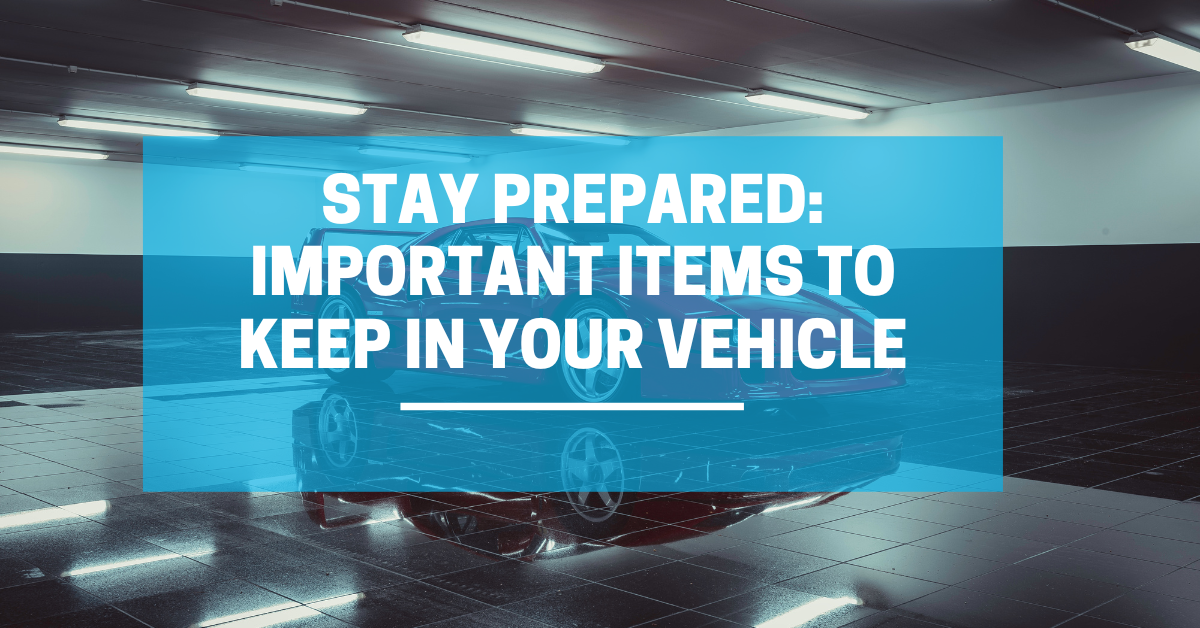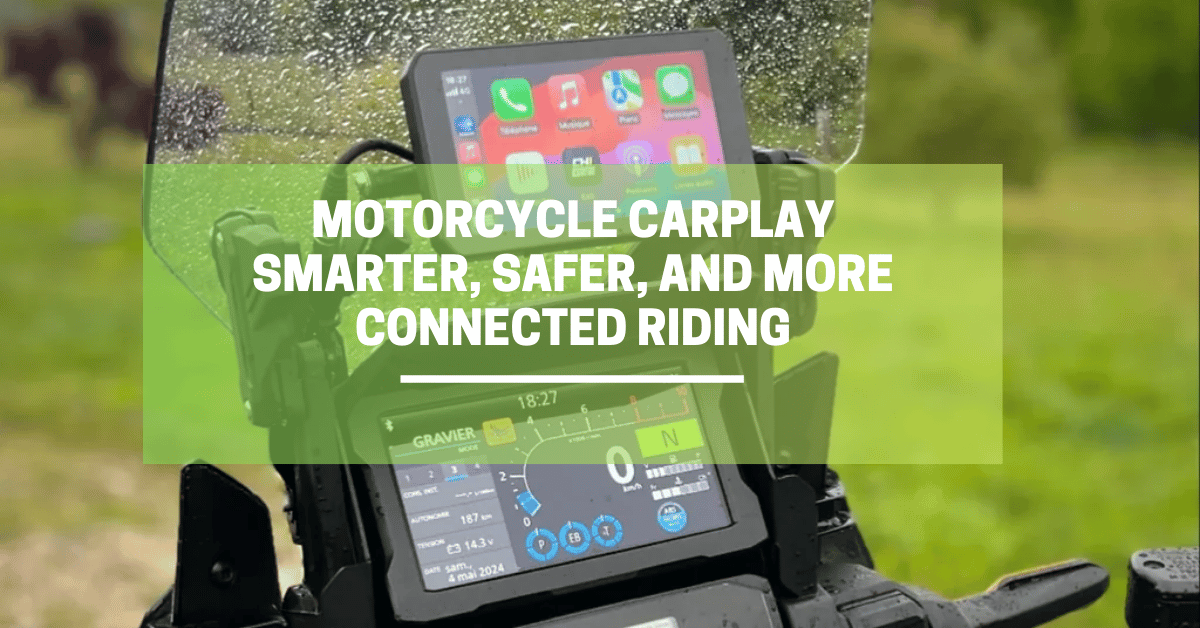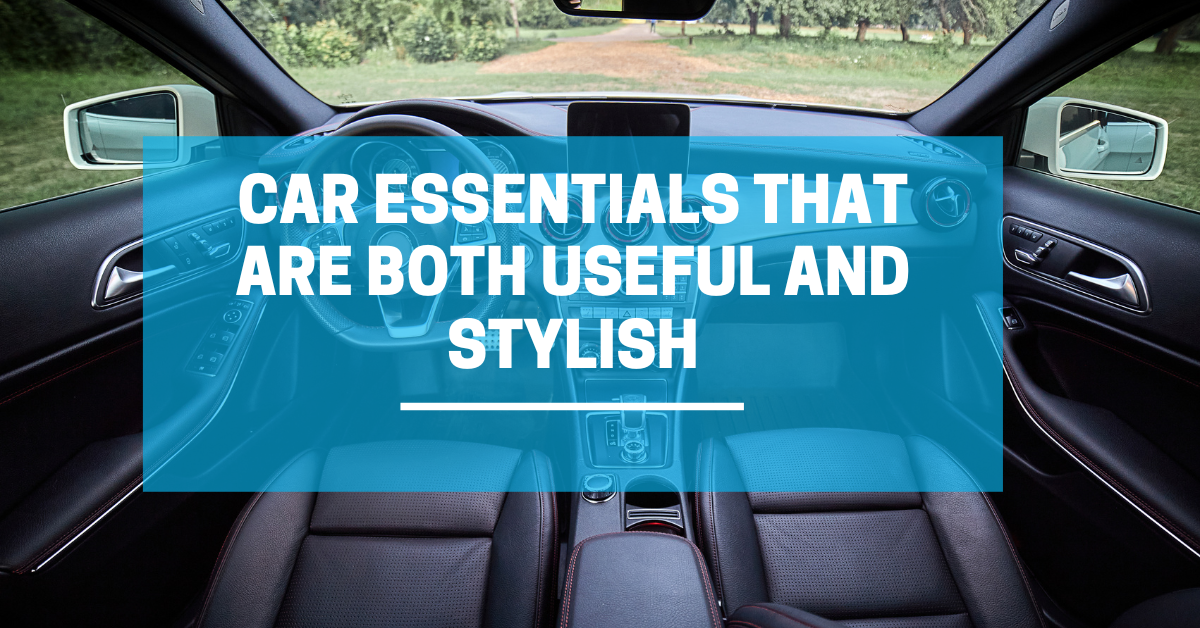Whether you’re commuting to work, running errands, or going on a long road trip, being prepared is key to safe and stress-free driving. Unexpected situations like flat tires, dead batteries, or minor accidents can happen anytime, leaving you stranded if you’re not ready.
That’s why keeping essential items in your car is a smart choice. From basic tools to safety gear, each item serves a purpose in helping you handle emergencies, save time, and protect yourself and your passengers. In this guide, we’ll cover must-have items every driver should always have in their car, so you can drive with confidence and peace of mind.
Small Toolkit for Car
A small toolkit is one of the most important things every driver should keep in their car. You never know when you might face a minor issue like a loose screw, a weak battery connection, or a flat tire. Having a basic set of tools can save you time, money, and stress during unexpected situations.
Your car toolkit doesn’t need to be large or expensive. A few essentials such as screwdrivers, pliers, a wrench, a tire pressure gauge, jumper cables, and a flashlight can make a big difference. With these tools, you can handle small repairs on the road instead of waiting for roadside assistance.
By keeping a small toolkit in your vehicle, you’re always prepared for emergencies and can drive with peace of mind.
Pair of Work Gloves
A pair of work gloves is a simple but highly useful item you should always keep in your car. When you’re changing a tire, checking the engine, or moving something heavy, gloves protect your hands from dirt, sharp edges, and extreme temperatures.
Good-quality gloves also give you a better grip, making it easier to handle tools and car parts safely. For example, during winter, gloves can prevent your hands from freezing while dealing with a breakdown. In summer, they protect against burns from hot surfaces under the hood.
Keeping a pair of durable work gloves in your vehicle ensures you’re always ready for roadside repairs or emergencies without risking injury.
Jumper Cables
Jumper cables are a must-have item in every car emergency kit. A dead battery is one of the most common issues drivers face, and without jumper cables, you could be stuck waiting for help for hours. With a pair of reliable jumper cables, you can quickly restart your vehicle by connecting to another car’s battery.
When choosing jumper cables, go for a heavy-duty set with long, thick wires to ensure safe and effective use. Store them in your trunk so they’re always within reach. Even if you don’t end up needing them, you might be able to help another driver in need.
By keeping jumper cables in your car, you’re prepared for unexpected battery problems and can avoid being stranded on the road.
Road Flares or Reflective Triangles
Road flares or reflective triangles are essential for safety whenever your car breaks down, especially at night or in low-visibility conditions. They alert oncoming drivers that your vehicle is stopped, reducing the risk of accidents.
Reflective triangles are reusable, lightweight, and easy to set up, making them a practical choice for most drivers. Road flares, on the other hand, are highly visible even in heavy rain or fog, which makes them ideal for emergencies. Whichever you choose, keep them in your trunk and ensure they’re easy to access during roadside breakdowns.
Having road flares or reflective triangles not only keeps you safe but also gives other drivers enough time to slow down and drive carefully around your vehicle.
Tire Gauge and Air Pump
A tire gauge and air pump are must-have tools to keep your car tires in good shape and avoid roadside emergencies. Proper tire pressure improves fuel efficiency, ensures better handling, and reduces the risk of blowouts. With a simple tire pressure gauge, you can quickly check if your tires are under or overinflated.
Pairing it with a portable air pump means you can refill your tires anytime, without relying on a gas station. Many modern air pumps are compact, plug into your car’s power outlet, and can inflate a tire within minutes.
By keeping a tire gauge and air pump in your car, you’ll save money on fuel, extend the life of your tires, and drive with more confidence on long trips.
Tire Chains
If you live in or travel through snowy or icy regions, tire chains are a lifesaver. They provide extra traction on slippery roads, helping your car grip the surface and reducing the chances of skidding. In fact, in some areas, carrying tire chains during winter is not just recommended but legally required.
Modern tire chains are designed to be lightweight, easy to install, and compact for storage in your trunk. Having them on hand means you can drive more safely in extreme weather without worrying about losing control of your vehicle.
Keeping a set of tire chains in your car ensures you’re prepared for harsh winter conditions, giving you peace of mind whenever you hit the road in snowy areas.
Spare Tire
A spare tire is one of the most important items every driver should keep in their car. Flat tires can happen anytime—whether from a nail, pothole, or sudden blowout—and without a spare, you could be stranded for hours. Having a properly inflated spare tire ensures you can replace the damaged one and continue your journey safely.
Make sure to check your spare tire regularly, just like your regular tires. It should always be in good condition and properly inflated. Along with the tire, keep the necessary tools such as a jack and lug wrench to make the replacement process easier.
By keeping a spare tire in your car, you’ll always be prepared for unexpected flats and avoid the stress of being stuck on the roadside.
Jack and Lug-Nut Wrench
A jack and lug-nut wrench are essential tools that go hand in hand with your spare tire. If you ever face a flat tire, you won’t be able to replace it without these two items. The jack helps you lift the car safely off the ground, while the lug-nut wrench allows you to loosen and tighten the bolts on your wheel.
It’s best to keep a sturdy, easy-to-use jack and a wrench that fits your vehicle’s lug nuts. Many modern cars already come with these tools, but it’s worth double-checking to make sure they’re in your trunk and in good condition.
By keeping a jack and lug-nut wrench in your car, you can handle flat tires quickly and get back on the road without waiting for roadside assistance.
Tire Sealant
A tire sealant is a quick and convenient solution for minor punctures when you don’t have time to change a tire. It works by sealing small holes and inflating the tire enough to get you safely to the nearest repair shop. This makes it especially useful if you’re stuck on a busy road or in bad weather where changing a tire may be unsafe.
Tire sealant is compact, easy to use, and can be stored in your trunk without taking up much space. While it’s not a permanent fix, it’s a reliable temporary solution that can save you from being stranded.
Keeping a tire sealant in your car ensures you have a backup option for emergencies when a spare tire or immediate repair isn’t possible.
First Aid Kit
A first aid kit is an essential item to keep in your car for emergencies. Accidents, cuts, or minor injuries can happen anytime on the road, and having a well-stocked first aid kit allows you to handle these situations quickly and effectively.
Your kit should include basics like bandages, antiseptic wipes, adhesive tape, scissors, pain relievers, and any personal medications. Compact first aid kits are easy to store in the glove compartment or trunk, ensuring you’re always prepared.
Keeping a first aid kit in your vehicle not only helps you treat minor injuries but also provides peace of mind during long drives or unexpected situations.
Tow Rope or Strap
A tow rope or strap is a practical tool every driver should have for emergencies. If your car gets stuck in mud, snow, or sand, or if another vehicle breaks down, a tow rope allows you to safely pull or be pulled to a safe location.
Look for a durable, high-quality rope or strap that can handle the weight of your vehicle. Store it in your trunk so it’s easily accessible during roadside emergencies. Knowing how to use a tow rope safely can make a big difference in avoiding further damage to your car or others.
By keeping a tow rope or strap in your car, you’re prepared for unexpected situations where your vehicle needs a helping hand.
Being prepared on the road doesn’t just make life easier—it can also save you from dangerous or costly situations. By keeping essentials like a small toolkit, jumper cables, tire repair items, safety gear, and emergency supplies, you ensure that you’re ready for anything that comes your way.
Take a few minutes to stock your car with these items today, and make it a habit to check them regularly. A well-prepared car is not just convenient—it’s a smart step toward safer, worry-free driving for you and your loved ones.
Small Toolkit for Car
A small toolkit is one of the most important things every driver should keep in their car. You never know when you might face a minor issue like a loose screw, a weak battery connection, or a flat tire. Having a basic set of tools can save you time, money, and stress during unexpected situations.
Your car toolkit doesn’t need to be large or expensive. A few essentials such as screwdrivers, pliers, a wrench, a tire pressure gauge, jumper cables, and a flashlight can make a big difference. With these tools, you can handle small repairs on the road instead of waiting for roadside assistance.
By keeping a small toolkit in your vehicle, you’re always prepared for emergencies and can drive with peace of mind.
Pair of Work Gloves
A pair of work gloves is a simple but highly useful item you should always keep in your car. When you’re changing a tire, checking the engine, or moving something heavy, gloves protect your hands from dirt, sharp edges, and extreme temperatures.
Good-quality gloves also give you a better grip, making it easier to handle tools and car parts safely. For example, during winter, gloves can prevent your hands from freezing while dealing with a breakdown. In summer, they protect against burns from hot surfaces under the hood.
Keeping a pair of durable work gloves in your vehicle ensures you’re always ready for roadside repairs or emergencies without risking injury.
Jumper Cables
Jumper cables are a must-have item in every car emergency kit. A dead battery is one of the most common issues drivers face, and without jumper cables, you could be stuck waiting for help for hours. With a pair of reliable jumper cables, you can quickly restart your vehicle by connecting to another car’s battery.
When choosing jumper cables, go for a heavy-duty set with long, thick wires to ensure safe and effective use. Store them in your trunk so they’re always within reach. Even if you don’t end up needing them, you might be able to help another driver in need.
By keeping jumper cables in your car, you’re prepared for unexpected battery problems and can avoid being stranded on the road.
Road Flares or Reflective Triangles
Road flares or reflective triangles are essential for safety whenever your car breaks down, especially at night or in low-visibility conditions. They alert oncoming drivers that your vehicle is stopped, reducing the risk of accidents.
Reflective triangles are reusable, lightweight, and easy to set up, making them a practical choice for most drivers. Road flares, on the other hand, are highly visible even in heavy rain or fog, which makes them ideal for emergencies. Whichever you choose, keep them in your trunk and ensure they’re easy to access during roadside breakdowns.
Having road flares or reflective triangles not only keeps you safe but also gives other drivers enough time to slow down and drive carefully around your vehicle.
Tire Gauge and Air Pump
A tire gauge and air pump are must-have tools to keep your car tires in good shape and avoid roadside emergencies. Proper tire pressure improves fuel efficiency, ensures better handling, and reduces the risk of blowouts. With a simple tire pressure gauge, you can quickly check if your tires are under or overinflated.
Pairing it with a portable air pump means you can refill your tires anytime, without relying on a gas station. Many modern air pumps are compact, plug into your car’s power outlet, and can inflate a tire within minutes.
By keeping a tire gauge and air pump in your car, you’ll save money on fuel, extend the life of your tires, and drive with more confidence on long trips.
Tire Chains
If you live in or travel through snowy or icy regions, tire chains are a lifesaver. They provide extra traction on slippery roads, helping your car grip the surface and reducing the chances of skidding. In fact, in some areas, carrying tire chains during winter is not just recommended but legally required.
Modern tire chains are designed to be lightweight, easy to install, and compact for storage in your trunk. Having them on hand means you can drive more safely in extreme weather without worrying about losing control of your vehicle.
Keeping a set of tire chains in your car ensures you’re prepared for harsh winter conditions, giving you peace of mind whenever you hit the road in snowy areas.
Spare Tire
A spare tire is one of the most important items every driver should keep in their car. Flat tires can happen anytime—whether from a nail, pothole, or sudden blowout—and without a spare, you could be stranded for hours. Having a properly inflated spare tire ensures you can replace the damaged one and continue your journey safely.
Make sure to check your spare tire regularly, just like your regular tires. It should always be in good condition and properly inflated. Along with the tire, keep the necessary tools such as a jack and lug wrench to make the replacement process easier.
By keeping a spare tire in your car, you’ll always be prepared for unexpected flats and avoid the stress of being stuck on the roadside.
Jack and Lug-Nut Wrench
A jack and lug-nut wrench are essential tools that go hand in hand with your spare tire. If you ever face a flat tire, you won’t be able to replace it without these two items. The jack helps you lift the car safely off the ground, while the lug-nut wrench allows you to loosen and tighten the bolts on your wheel.
It’s best to keep a sturdy, easy-to-use jack and a wrench that fits your vehicle’s lug nuts. Many modern cars already come with these tools, but it’s worth double-checking to make sure they’re in your trunk and in good condition.
By keeping a jack and lug-nut wrench in your car, you can handle flat tires quickly and get back on the road without waiting for roadside assistance.
Tire Sealant
A tire sealant is a quick and convenient solution for minor punctures when you don’t have time to change a tire. It works by sealing small holes and inflating the tire enough to get you safely to the nearest repair shop. This makes it especially useful if you’re stuck on a busy road or in bad weather where changing a tire may be unsafe.
Tire sealant is compact, easy to use, and can be stored in your trunk without taking up much space. While it’s not a permanent fix, it’s a reliable temporary solution that can save you from being stranded.
Keeping a tire sealant in your car ensures you have a backup option for emergencies when a spare tire or immediate repair isn’t possible.
First Aid Kit
A first aid kit is an essential item to keep in your car for emergencies. Accidents, cuts, or minor injuries can happen anytime on the road, and having a well-stocked first aid kit allows you to handle these situations quickly and effectively.
Your kit should include basics like bandages, antiseptic wipes, adhesive tape, scissors, pain relievers, and any personal medications. Compact first aid kits are easy to store in the glove compartment or trunk, ensuring you’re always prepared.
Keeping a first aid kit in your vehicle not only helps you treat minor injuries but also provides peace of mind during long drives or unexpected situations.
Tow Rope or Strap
A tow rope or strap is a practical tool every driver should have for emergencies. If your car gets stuck in mud, snow, or sand, or if another vehicle breaks down, a tow rope allows you to safely pull or be pulled to a safe location.
Look for a durable, high-quality rope or strap that can handle the weight of your vehicle. Store it in your trunk so it’s easily accessible during roadside emergencies. Knowing how to use a tow rope safely can make a big difference in avoiding further damage to your car or others.
By keeping a tow rope or strap in your car, you’re prepared for unexpected situations where your vehicle needs a helping hand.
Being prepared on the road doesn’t just make life easier—it can also save you from dangerous or costly situations. By keeping essentials like a small toolkit, jumper cables, tire repair items, safety gear, and emergency supplies, you ensure that you’re ready for anything that comes your way.
Take a few minutes to stock your car with these items today, and make it a habit to check them regularly. A well-prepared car is not just convenient—it’s a smart step toward safer, worry-free driving for you and your loved ones.





